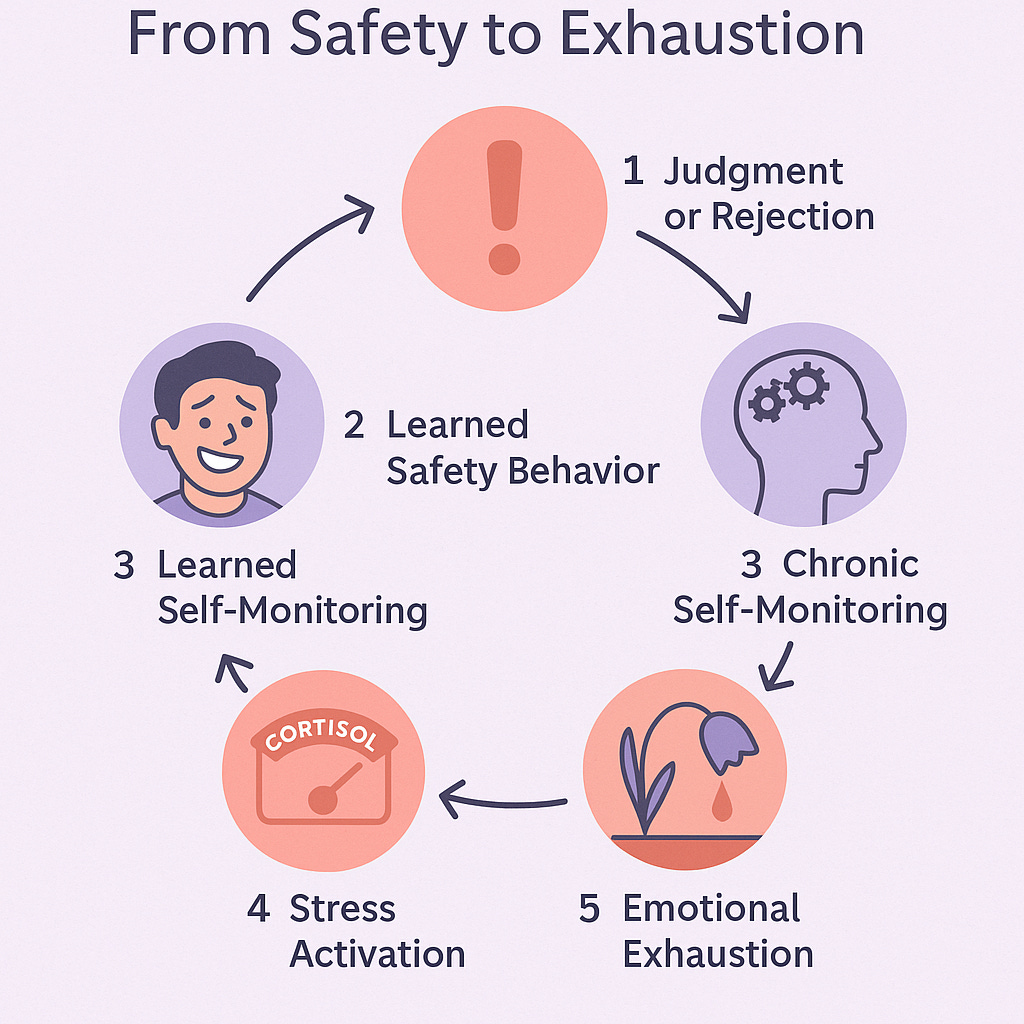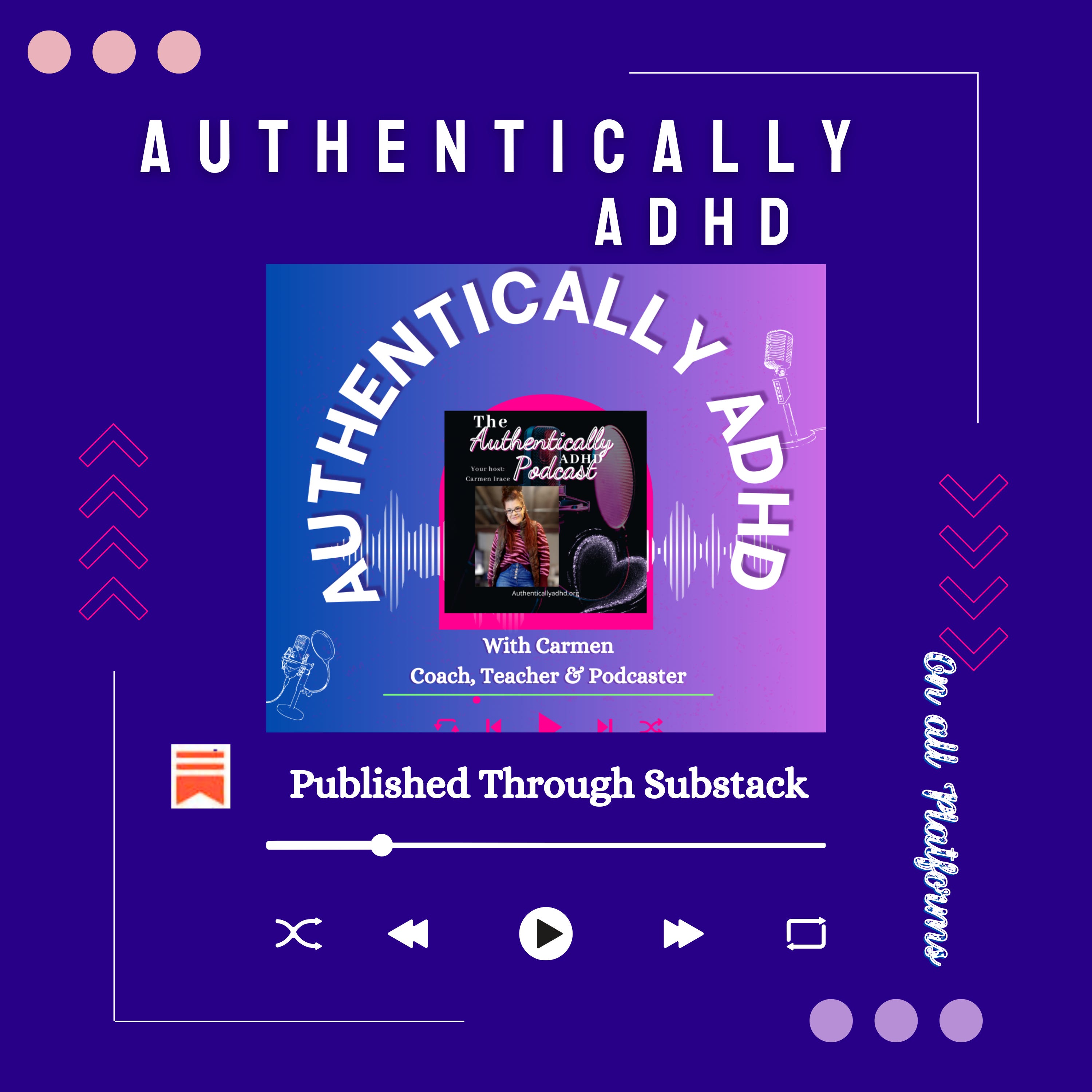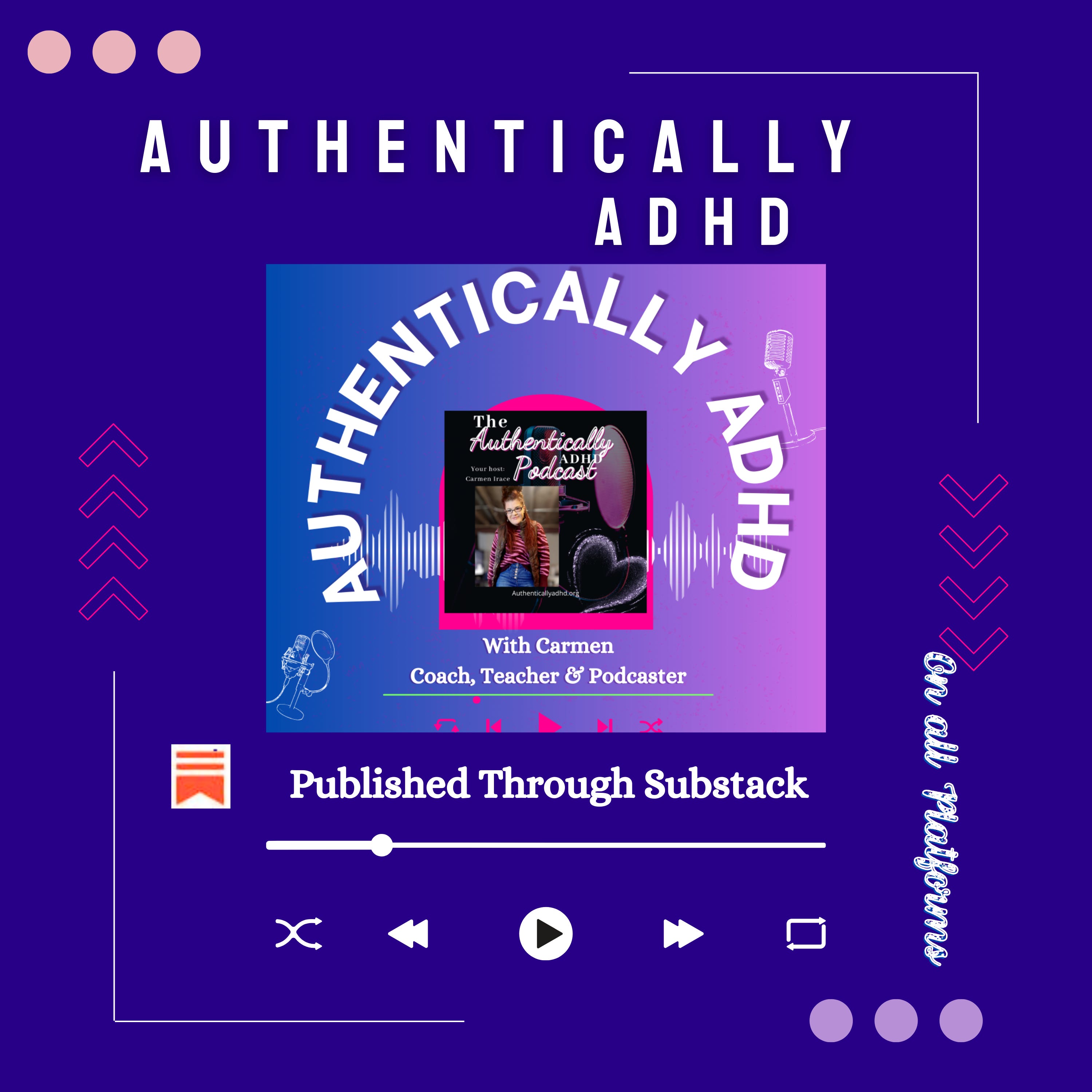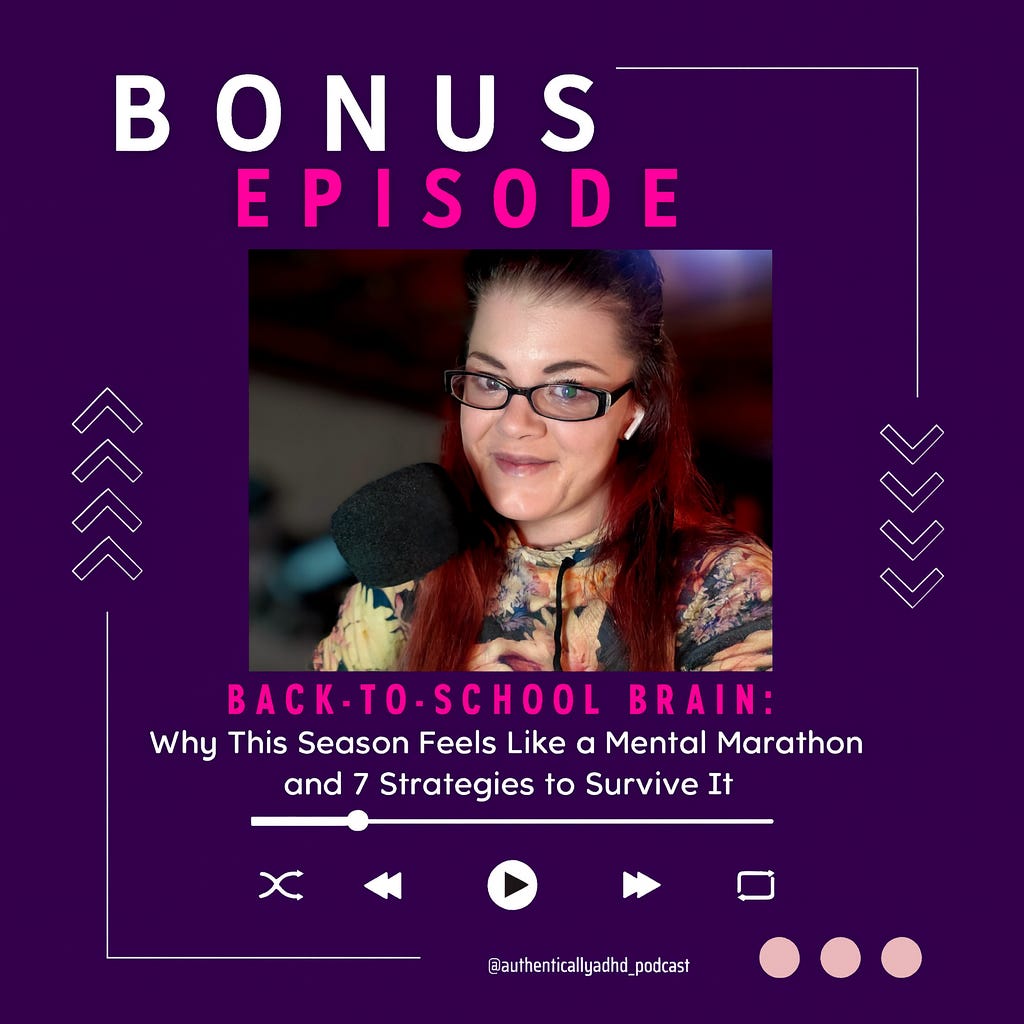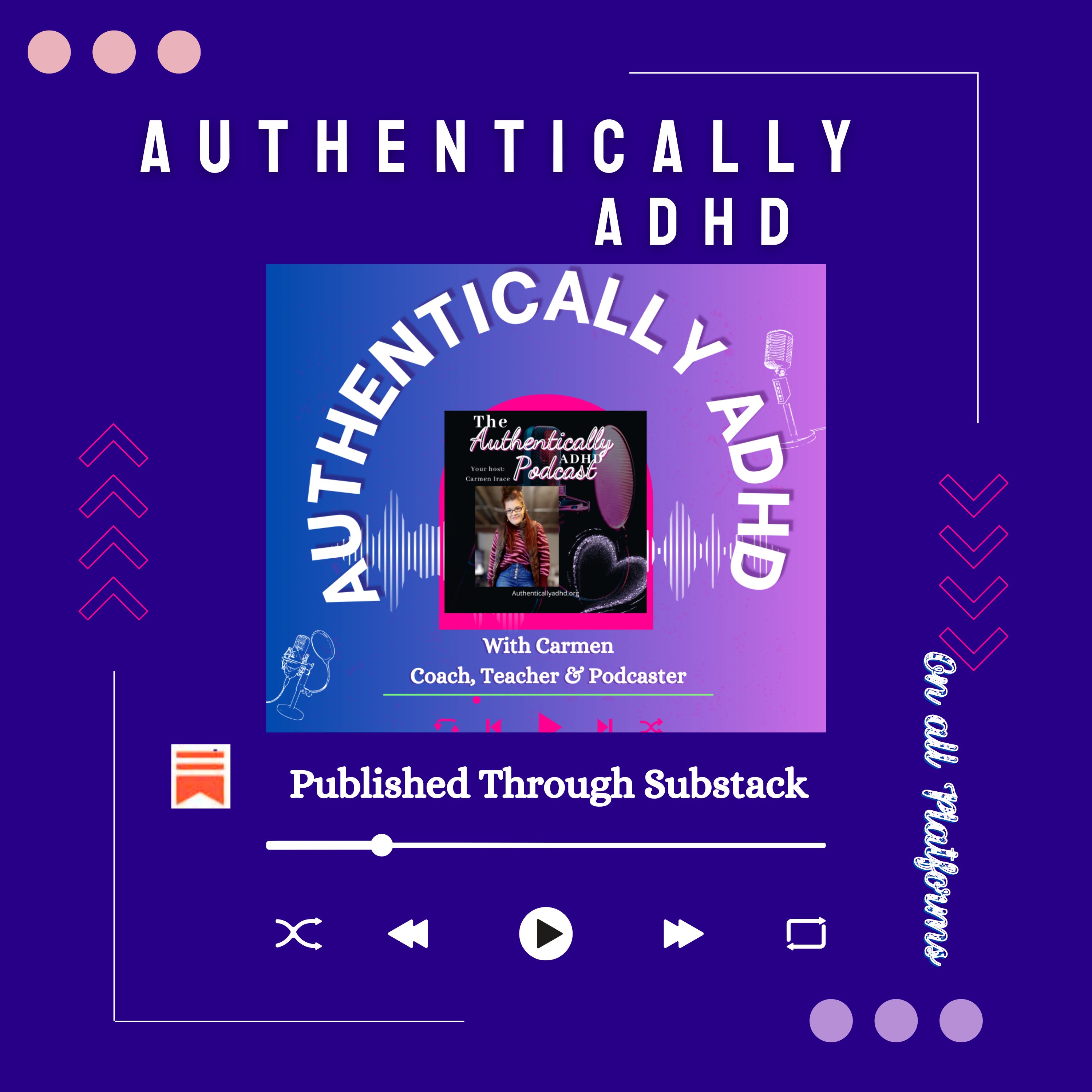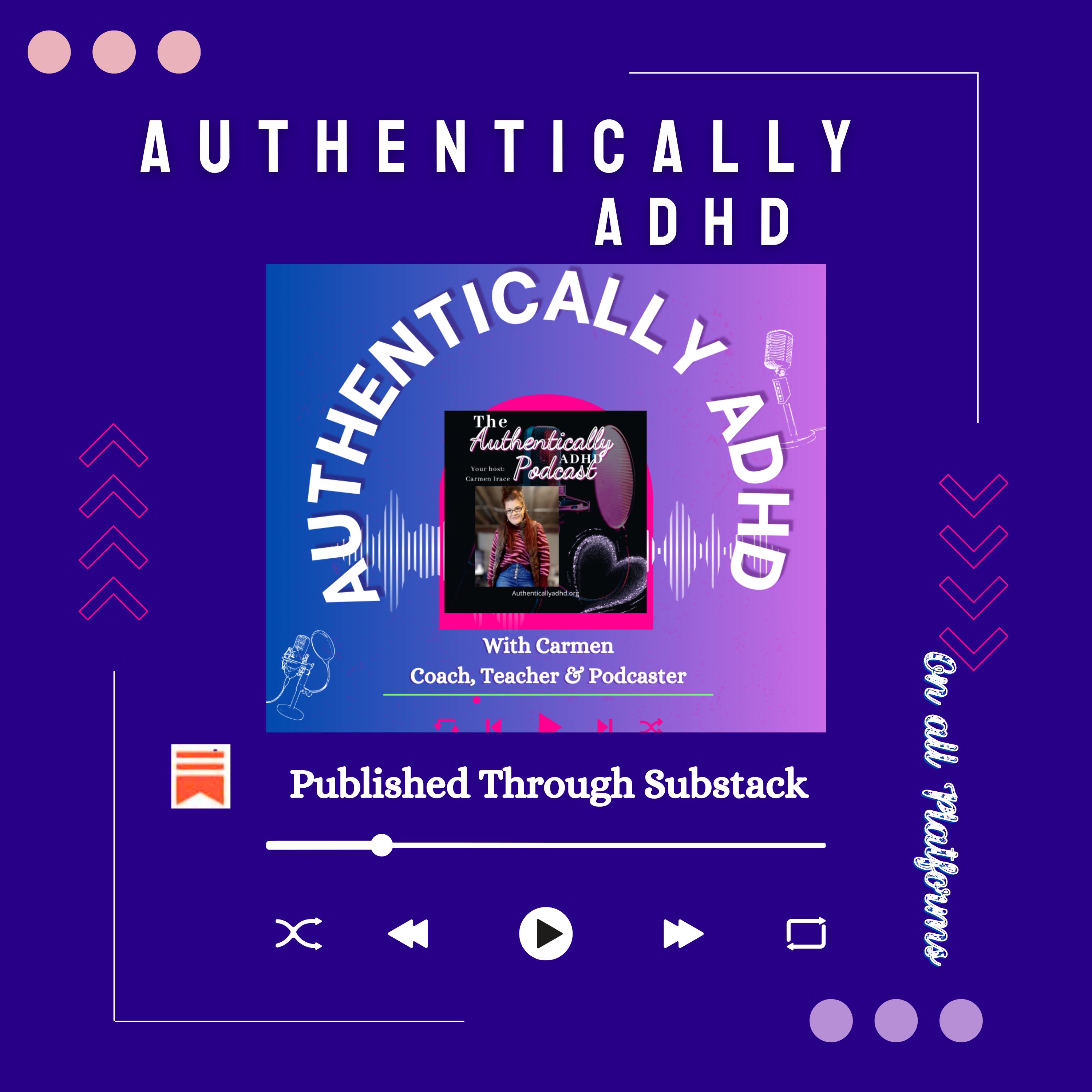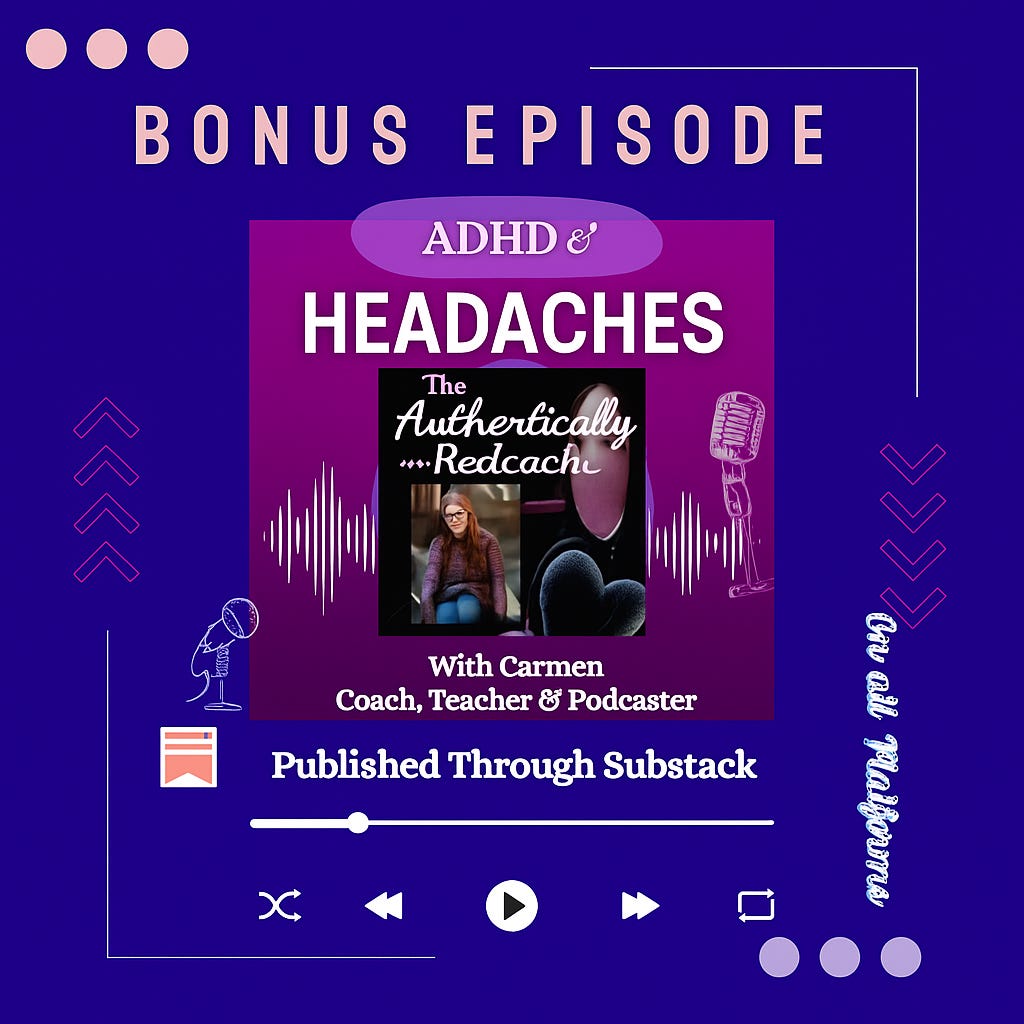BONUS EPISODE: Love on a Roller Coaster, The ADHD Guide to Spotting Toxic Partners
Description
Picture this: You’re on the wildest roller coaster of your life – dizzying highs, sudden drops, and your heart racing. For many of us with ADHD, early romance can feel exactly like that. Our brains light up with excitement and novelty, but those same traits that make us passionate can also leave us vulnerable to toxic relationships. Research shows that adults with ADHD often report childhood trauma and have brains that crave dopamine in high doses. That means the drama of a turbulent partner might feel familiar or even thrilling. As Dr. Gabor Maté puts it, people unconsciously “choose each other with an unerring instinct” for partners who mirror their own unresolved anxieties and pain. In plain terms, ADHD traits plus past stresses can set us up for danger if we’re not careful. Today on Authentically ADHD, we’re peeling back the curtain on why ADHD brains are wired to overlook red flags, and how to recognize and escape toxic dynamics – with a dose of neuroscience, expert insight, and real talk.
Impulsivity & Novelty-Seeking
For someone with ADHD, new romance can be intoxicating. We crave excitement, and a high-energy partner often delivers. As ADHD experts explain, ADHD often means higher impulsivity and constant novelty-seeking. In one study’s key takeaways, ADHD “can cause increased impulsivity and novelty-seeking behavior — like constantly looking for new and exciting experiences”. In practice, that means you might rush headlong into a relationship without waiting to see the red flags. Dr. Edward Hallowell famously described how a person with ADHD “seldom feels bored”, instantly switching to something new at the first hint of dullness. When a toxic partner offers a rush of drama – extreme highs like bombarding you with affection (love-bombing), followed by sharp criticisms – your ADHD brain gets dopamine hits at every twist and turn. Those dopamine spikes can feel like love, making chaos seem exciting instead of dangerous.
For example, imagine texting back instantly without thinking, even when something feels off. Or jumping into serious commitments with someone who’s shown controlling behaviors, simply because the initial chemistry is overwhelming. That’s ADHD impulsivity and thrill-seeking at work. We’re more likely to mistake high drama for passion. But remember: healthy relationships can be dynamic too, with steady excitement that builds trust, not tension. As one ADDitude expert notes, treating your ADHD through therapy, medication, or coaching can diminish the craving for those unhealthy dopamine hits, helping you choose more stable love over wild rides.
Hyperfocus on the Wrong Partners
It’s no secret: we can intensely fixate on a new crush. In ADHD terms, this is hyperfocus – pouring all our attention into one person. Early in romance, that means calling, texting, planning every detail together in a way that feels magical. But there’s a catch. As ADDitude editors point out, people with ADHD “feel emotions intensely and might hyperfocus on their partner, especially at the outset of a new, exciting relationship”. In practice, we hang on every word they say, overlook snide comments, and rewrite our own friend’s concerns as jealousy or misunderstanding.
For instance, imagine the first few weeks with a new partner: your ADHD brain is 100% engaged. They text, you reply lightning-fast. They cancel plans unexpectedly, and you shrug it off because you’re so grateful to have their attention at all. That hyperfocus can blind us to manipulation. We might stay up all night chatting about their life story – even the parts that don’t add up – or excuse their mood swings because we’re convinced this time they really get us. In short, hyperfocus makes us all in right away. Unfortunately, that’s exactly when a toxic partner is most charming. The downside: once the infatuation fades, the problems you missed can hit hard.
Emotional Dysregulation & RSD
If romance hits a rough patch, ADHD brains react strongly. Many of us experience big emotions and mood swings that non-ADHD folks don’t. This is by no accident: researchers like Dr. Russell Barkley show that emotional impulsiveness and deficient emotional self-regulation (DESR) are integral to ADHD. In plain terms, we can swing from zero to a hundred easily. One ADHD expert put it simply: many adults with ADHD “experience big emotions, and such intense emotions can easily destabilize even the strongest partnerships”. You might cry for hours over a forgotten text, or erupt in anger if you feel left out.
On top of that, ADHD comes with something called Rejection Sensitive Dysphoria (RSD). RSD means we feel rejection or criticism as emotional pain so intense it’s almost physical. Even a partner’s mild critique might feel like a punch to the gut. Picture this: your partner says, “Maybe you should try to be on time,” and suddenly you’re convinced they’re plotting to dump you. That fear triggers panic; you obsess over what you did wrong all night. RSD can make us paranoid about losing someone, even if they haven’t shown real signs of leaving. As one therapist explains, this leads some of us to overreact or interpret neutral acts as intentional hurt.
The result? Emotional turmoil in the relationship. You may push back fiercely, cry uncontrollably, or withdraw completely, depending on the day. A toxic partner often intentionally amplifies this – a small critique from them can send you spiraling, which they then dismiss as irrational. Meanwhile, your inability to regulate means you keep doing exactly what angers you or makes you sad. Over time, the ups and downs can leave you feeling drained and doubting your sanity.
Next up we are talking Boundaries, low self trust, fear of abandonment & misinterpreting social cues and of course some tips on how to spot the red flags and feel more empowered, but first a word from our sponsors….
********************course AD, patreon & FOCUSED **************
Executive Dysfunction and Boundaries
Another ADHD truth: our executive functioning – planning, organizing, self-control – can be a major challenge. In relationships, this often shows up as forgiving and forgetting where we shouldn’t. We struggle to keep track of agreed boundaries. If our partner sets a rule and then crosses it, we might not recall our agreement clearly, or our impulsivity makes us give in. We might be hyper-organized about work but completely miss that we promised to stay home for the night.
According to relationship researchers, the ADHD symptoms that commonly impact love include inattention, forgetfulness, impulsivity, and disorganization. These can make our partners feel like we’re unreliable or distracted (even if we aren’t trying to be). For example, you might forget to call back, miss important dates, or say something impulsive without meaning to. In a toxic dynamic, an abusive partner may use this “flakiness” as more fodder: “You never care!” they might snap, and you believe it. If you’ve already agreed on a boundary, then your executive funk sets in, you slip, and they use that slip-up against you.
Imagine a scenario: Your partner says you’re not allowed to have certain friends, but because you forgot the rule, you slip into a group chat. They find out and accuse you of betrayal. You try to organize a simple date night to save the peace, but you overcommit and then drop the ball. Each mistake feeds into a narrative that you are the unreliable one. In reality, ADHD makes it hard to maintain consistency, and a toxic partner will exploit every mix-up.
Low Self-Trust and Fear of Abandonment
After so many mistakes and misunderstandings, our self-trust can plummet. We start to doubt our instincts. If every relationship feels doomed or everyone seems angry at us, we might think “There must be something wrong with me.” That’s a dangerous trap. People with ADHD often develop a deep-seated fear of abandonment – a terror that if we speak up or leave, we really will end up alone. This fear is fueled by a history of feeling rejected or criticized (or even trauma) early in life.
Dr. Maté’s insight is revealing here: “Couples choose each other with an unerring instinct for finding the very person who will exactly match their own level of unconscious anxieties and mirror their own dysfunctions…”. In other words, we often (unconsciously) pick partners who resonate with our own pain. If you grew up feeling dismissed or unsafe, you might be drawn to someone who keeps you just anxious enough to feel something. Once in that relationship, the fear of losing them can become paralyzing. You worry that no one else would put up with you, so you stay and ignore the issues. This matches what many therapists see: ADHDers, already vulnerable after feeling misunderstood for years, often fear that demanding respect means losing love.
On top of that, people with ADHD frequently have low self-esteem because of a lifetime of “you’re late, you forgot, you didn’t finish.” Dr. Ari Tuckman and others note that ADHD can come hand-in-hand with low confidence and negative self-talk. When that combines with RSD, any threat of breakup feels like confirmation that we’re worthless. A toxic partner can pick up on this. They may say, “If you left, you’d be alone forever,” or even gaslight you into thinking you are the problem. We’re vulnerable to believing them.
Misreading Manipulation & Social Cues
Here’s another twist: ADHD can make social cues tricky. Many of us are extremely empathetic and assume people are good. At the same time, we can be so distracted that subtle manipulations fly under our radar. A partner might gaslight (“You imagined that, I never said that”) or shift blame, and we might miss or excuse it. We might rationalize their behavior (“He’s just stressed”) when an outsider sees it’s abuse. Sadly, this combination – empathy plus distractibility – can make us


